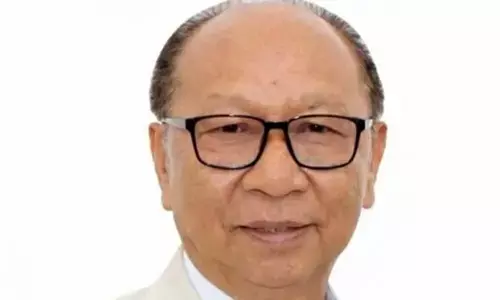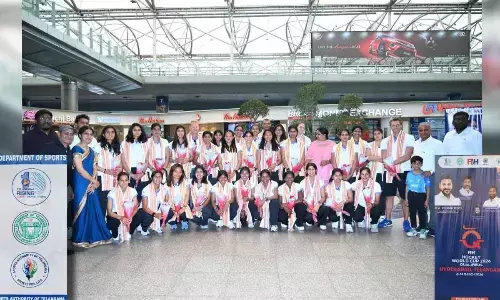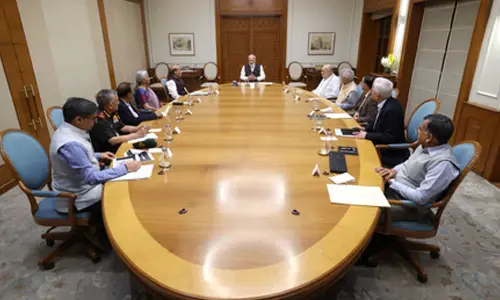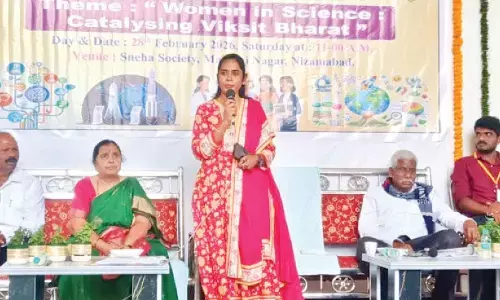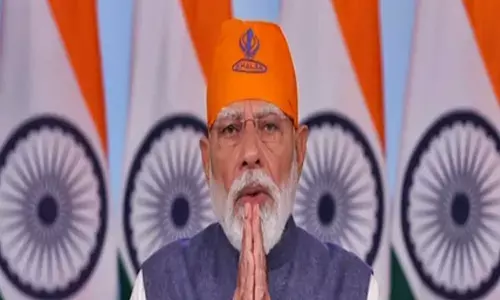Minister Sudhakar lauds DRDO's Covid drug as game changer
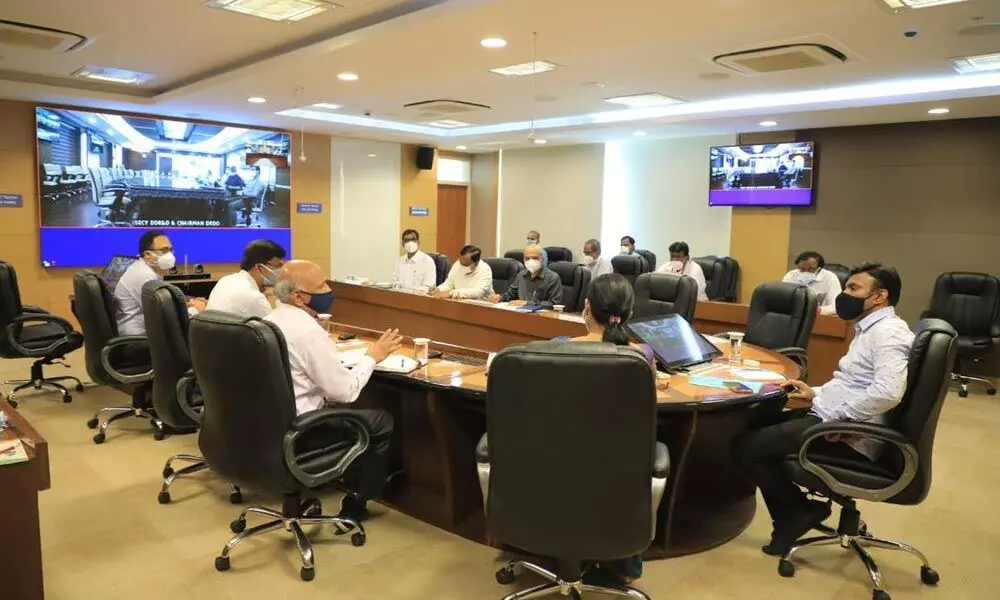
Minister Sudhakar lauds DRDO's Covid drug as game changer
Visits DRDO oxygen unit, says vaccine developed by IISc could be another milestone
Bengaluru: Health Minister Dr K.Sudhakar visited the DRDO campus in Bengaluru where he was briefed by scientists about the ongoing efforts at the premier research organisation to find solutions to tackle the pandemic. This comes a day after the minister's interaction with another premier science institute, the Indian Institute of Sciences (IISc).
The 2-DG drug developed by DRDO is a big breakthrough and could be a game changer in the battle against pandemic as it helps in faster recovery of hospitalised patients and reduces oxygen dependence. PM-CARES Fund will procure 1.5 lakh units of Oxycare systems at a cost of Rs 322.5 crore. Another innovative solution, the Oxycare system reduces the workload and exposure of healthcare providers by eliminating the need for routine measurement and manual adjustments of oxygen flow.
An anti-Covid therapeutic application of the drug 2-deoxy-D-glucose (2-DG) has been developed by Institute of Nuclear Medicine and Allied Sciences (INMAS), a lab of Defence Research and Development Organisation (DRDO), in collaboration with Dr Reddy's Laboratories (DRL), Hyderabad. Clinical trial results have shown that this molecule helps in faster recovery of hospitalised patients and reduces supplemental oxygen dependence. Higher proportion of patients treated with 2-DG showed RT-PCR negative conversion in Covid patients. The drug will be of immense benefit to the people suffering from Covid-19.
Pursuing Prime Minister Narendra Modi's call for preparedness against the pandemic, DRDO took the initiative of developing anti-COVID therapeutic application of 2-DG. In April 2020, during the first wave of the pandemic, INMAS-DRDO scientists conducted laboratory experiments with the help of Centre for Cellular and Molecular Biology (CCMB), Hyderabad and found that this molecule works effectively against SARS-CoV-2 virus and inhibits the viral growth. Based on these results, the Drugs Controller General of India's (DCGI) Central Drugs Standard Control Organization (CDSCO) permitted Phase-II clinical trials of 2-DG on Covid-19 patients in May 2020.
The DRDO, along with its industry partner DRL, Hyderabad, started the clinical trials to test the safety and efficacy of the drug in COVID-19 patients. In Phase-II trials (including dose ranging) conducted during May to October 2020, the drug was found to be safe in COVID-19 patients and showed significant improvement in their recovery. Phase IIa was conducted in six hospitals and Phase IIb (dose ranging) clinical trial was conducted at 11 hospitals all over the country. Phase-II trial was conducted on 110 patients.
In efficacy trends, the patients treated with 2-DG showed faster symptomatic cure than Standard of Care (SoC) on various endpoints. A significantly favourable trend (2.5 days difference) was seen in terms of the median time to achieving normalisation of specific vital signs parameters when compared to SoC.
Based on successful results, DCGI further permitted the Phase-III clinical trials in November 2020. The Phase-III clinical trial was conducted on 220 patients between December 2020 to March 2021 at 27 Covid hospitals in Delhi, Uttar Pradesh, West Bengal, Gujarat, Rajasthan, Maharashtra, Andhra Pradesh, Telangana, Karnataka and Tamil Nadu. The detailed data of the phase-III clinical trial was presented to DCGI. In the 2-DG arm, a significantly higher proportion of patients improved symptomatically and became free from supplemental oxygen dependence (42% vs 31%) by Day-3 in comparison to SoC, indicating an early relief from oxygen therapy/dependence.
The similar trend was observed in patients aged above 65 years. On May 1, DCGI granted permission for emergency use of this drug as adjunct therapy in moderate to severe Covid-19 patients. Being a generic molecule and analogue of glucose, it can be easily produced and made available in plenty in the country. The drug comes in powder form in sachet, which is taken orally by dissolving it in water. It accumulates in the virus infected cells and prevents virus growth by stopping viral synthesis and energy production. Its selective accumulation in virally infected cells makes this drug unique.
In the ongoing second wave, a large number of patients are facing severe oxygen dependency and need hospitalisation. The drug is expected to save precious lives due to the mechanism of operation of the drug in infected cells. This also reduces the hospital stay of Covid-19 patients.
OxyCare System - a smart solution
Oxycare system is a comprehensive system developed by DRDO to regulate oxygen being administered to patients based on the sensed values of their SpO2 levels.
The system has been developed in two configurations. The basic version consists of a 10 litre oxygen cylinder, a pressure regulator cum flow controller, a humidifier and a nasal cannula. The oxygen flow is regulated manually based on the SpO2 readings. The intelligent configuration includes a system for automatic regulation of oxygen through a low pressure regulator, electronic control system and an SpO2 probe in addition to the basic version.
SpO2 Based Oxygen Control System optimises consumption of oxygen based on the SpO2 level of the patient and effectively increases the endurance of portable oxygen cylinder. The threshold SpO2 value for initiating flow from the system can be adjusted by the health staff and the SpO2 levels are continuously monitored and displayed by the system. It reduces the workload and exposure of healthcare providers by eliminating the need of routine measurement and manual adjustments of Oxygen flow, thereby facilitating tele-consultation also. The automatic system also provides suitable audio warning for various failure scenarios including low SpO2 values and probe disconnections. These Oxycare systems can be used at Homes, Quarantine Centres, Covid Care Centres and Hospitals.
In addition, Non-Rebreather Masks (NRM) are integrated with the Oxycare Systems for efficient use of oxygen which results in saving of Oxygen by 30-40%. DRDO has transferred the technology to multiple industries in India who will be producing the Oxycare systems for use all across India.
The current medical protocol recommends oxygen therapy for all severe and critical Covid-19 patients. Given the current status of oxygen generation, transport and storage, oxygen cylinders have proved to be effective. Considering the present pandemic situation with a large number of individuals requiring oxygen therapy, sourcing only one type of system may not be practical, as all the manufacturing plants making the basic building blocks of the system are already running at their maximum capacity. A mix and match of the system would prove to be a useful arrangement in the given situation. While the capacity of existing domestic manufacturers of carbon-manganese steel cylinders is very limited, as an alternative, DRDO has suggested light material portable cylinders which can easily act as substitutes for normal oxygen cylinders.
Health Minister K.Sudhakar also visited the oxygen plant installed by DRDO at its Thippasandra campus and appreciated the efforts of DRDO.
"Bengaluru is the science and technology capital of India and home to several premier institutes. The efforts of institutes like IISc and DRDO to find innovative and effective solutions to fight this pandemic is laudable. The vaccine developed by IISc which can be stored in warm temperatures and the 2-DG drug and OxyCare system developed by DRDO are game changers in the battle against Covid-19." said Dr.K.Sudhakar.


